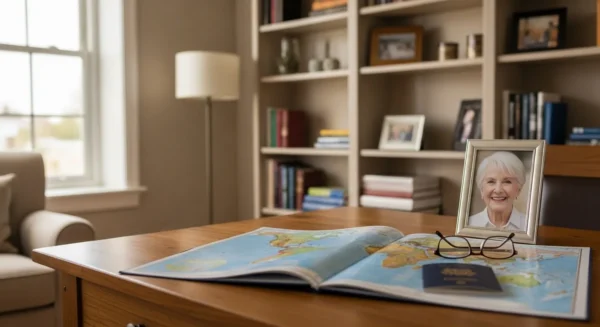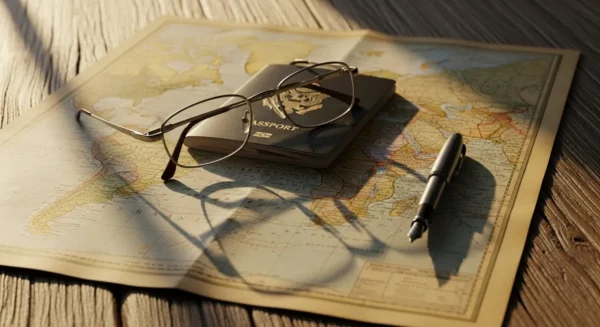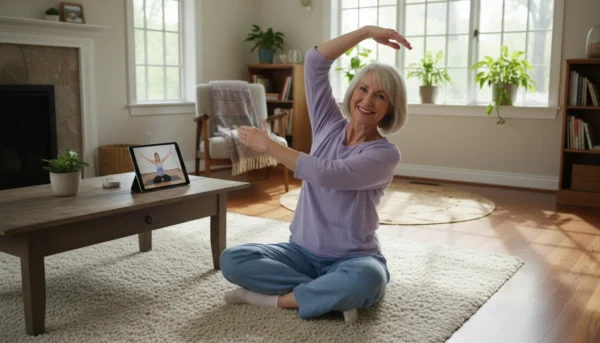The first two years of my retirement were exactly what you’d expect, and for a while, that was a good thing. After forty years as a civil engineer, designing bridges and overpasses, my life had been dictated by deadlines, budgets, and the unyielding logic of physics. So, when I hung up my hard hat for good, the quiet felt like a reward. My partner and I had a comfortable home in suburban Ohio, a paid-off mortgage, and a predictable, pleasant rhythm to our days.
Mondays were for golf. Tuesdays, I’d putter in the workshop. On Thursdays, we’d have our son, his wife, and the grandkids over for dinner. It was nice. It was stable. It was… gray. The vibrant colors of a life filled with purpose and challenge had slowly faded into a comfortable, but monotonous, monochrome. I loved seeing my family, but I felt like I was watching my life from the sidelines, a friendly spectator in a story that was no longer about me.
My spouse, who had always been the dreamer in our partnership, felt it too. One evening, as we sat on the porch swing, he sighed. “Rose,” he said, his voice quiet, “is this it? Is this the whole rest of the story?” I didn’t have an answer.

The Postcard That Planted a Seed
The change didn’t come from a grand plan. It came from a postcard. My spouse’s college roommate, Susan, had been living in Portugal for a decade. Every year, we’d get a Christmas card with a photo of her on a sun-drenched beach. This time, it was a simple postcard that arrived in mid-April. On the front was a picture of a ridiculously charming cobblestone street in a town called Tavira. On the back, she’d scrawled, “The guest room is always open! Why don’t you two come for a proper visit?”
I initially dismissed it. “Portugal? What would we do in Portugal?” But he had a glint in his eye I hadn’t seen in years. “We’d visit Susan,” she said. “We’d drink wine and eat fresh fish. We’d walk on the beach. We’d see what it’s like.”
So, we went. We booked a three-week trip, thinking of it as just a long vacation. But it wasn’t a vacation; it was an awakening. We weren’t staying in a resort; we were staying in Susan’s small apartment, shopping at the local mercado, and fumbling our way through ordering coffee. The days were slow but full. We’d spend mornings reading by the Gilão River, afternoons exploring ancient castle walls, and evenings sitting at outdoor cafes, listening to the musical cadence of the Portuguese language around us.
One afternoon, sitting on a bench overlooking the sea, my spouse turned to me. “I could live here,” he said, not as a wistful dream, but as a statement of fact. And the scariest part? For the first time, I thought, me too.
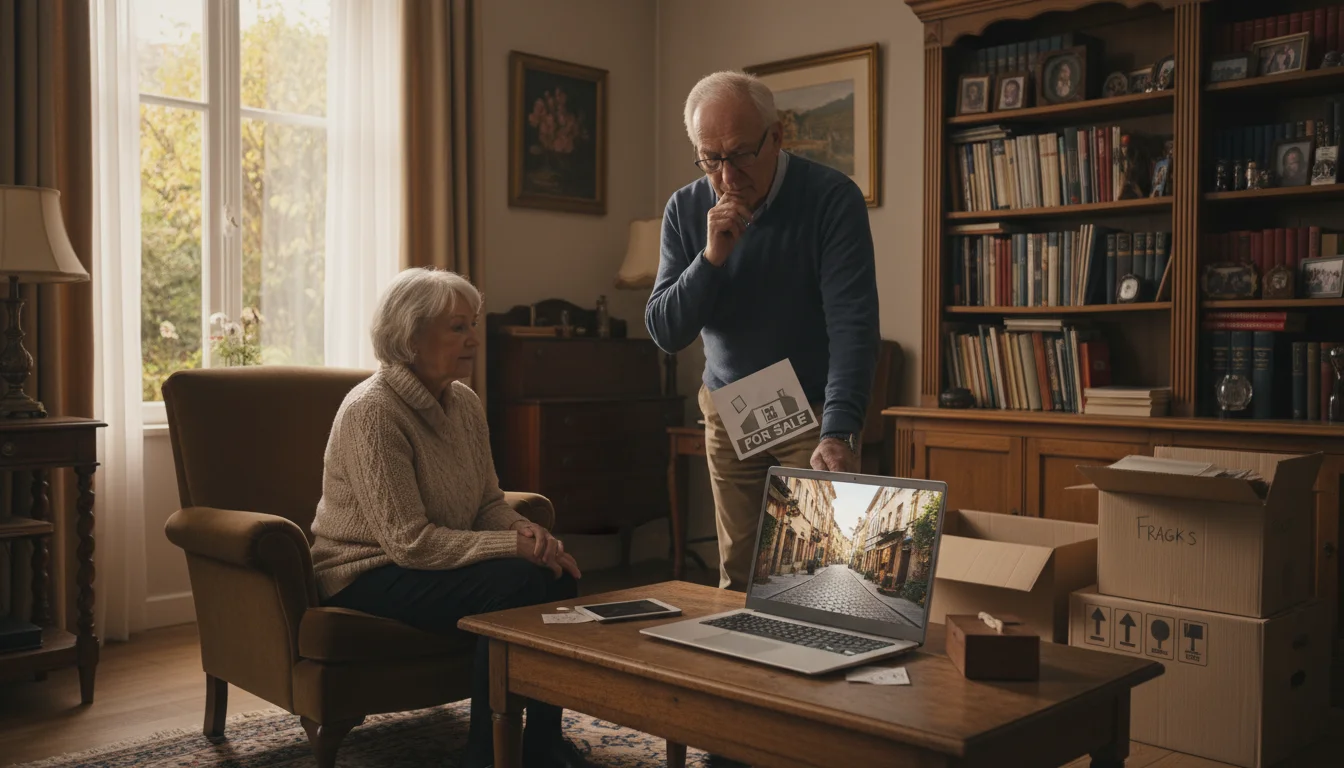
Trading Certainty for Cobblestones
The idea of retiring abroad went from a whisper to a serious conversation. Back home in Ohio, our comfortable routine suddenly felt like a cage. The prospect of an international retirement was both terrifying and electrifying. We spent the next six months in a state of intense research and debate.
We made endless lists of the retire overseas pros and cons. On the “pro” side: the incredible affordability, the fresh, healthy food, the beautiful weather, and the chance for a real adventure. On the “con” side: leaving our family, the language barrier, navigating a foreign healthcare system, and the monumental task of dismantling a life we’d spent 40 years building.
Our kids thought we’d lost our minds. “You’re going to sell the house? The house we grew up in?” my son asked, his voice a mix of concern and disbelief. “What about your doctors? What if you get sick?”
These were all valid fears, and they kept me up at night. The bureaucracy was the first real test of our resolve. Applying for the D7 visa felt like a full-time job. We gathered stacks of financial records, FBI background checks, and letters of intent. There were moments I was ready to throw my hands up and call the whole thing off. It would be so much easier to just stay, to play another round of golf, to accept the gray.
But then I’d look at Eleanor, who was diligently practicing Portuguese with a phone app, and I’d see that spark again. This wasn’t just about escaping boredom; it was about running toward a different kind of life, together. That gave me the strength to push through one more notarized document, one more confusing phone call.

The Nitty-Gritty of a New Life
Selling our house was the hardest part. Every object held a memory—the height chart penciled on the kitchen doorframe, the worn spot on the armchair where I read to the kids, the garden Eleanor had lovingly tended for decades. We weren’t just getting rid of things; we were closing a chapter. It was gut-wrenching, but also liberating. We learned that our lives were not defined by our possessions, but by our experiences and our courage.
The first few months in Tavira were a masterclass in humility. My engineering brain, so used to logic and order, was constantly short-circuiting. Simple tasks became adventures. The first time I went to the grocery store alone, I came back with what I thought was laundry detergent but turned out to be fabric softener. We learned to laugh at ourselves. A lot.
We enrolled in a local language class for expats. Our classmates were from all over the world—England, Germany, Canada, South Africa. We were all in the same boat, fumbling with verb conjugations and bonding over our shared mistakes. These people became our first friends, our new community. This is a vital part of expat senior living; you have to actively build your social circle from scratch.
And the healthcare? It turned out to be one of the biggest positives. We signed up for the public system and supplemented it with affordable private insurance. The care is excellent, personal, and shockingly inexpensive compared to what we were used to. That nagging fear my son had voiced was replaced by a sense of security.
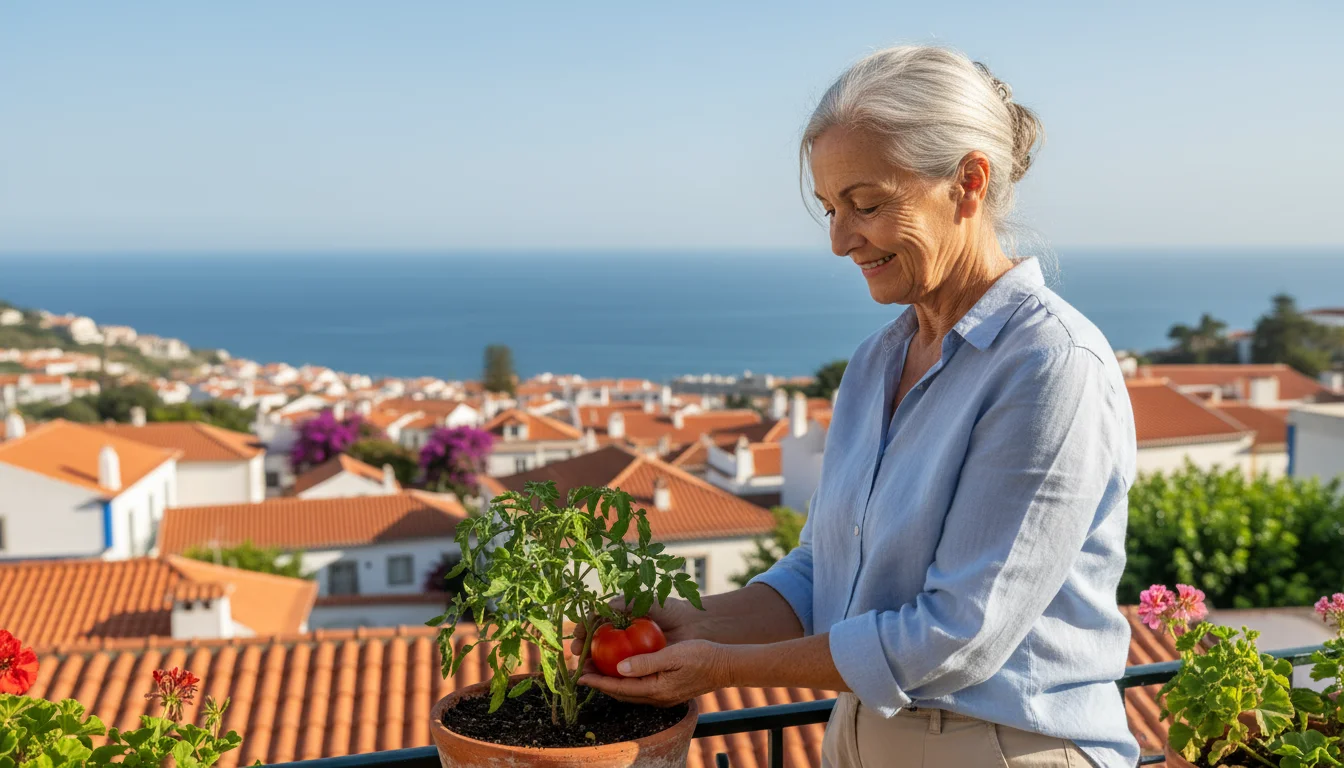
A Different Kind of Rich
It’s been four years now. Our Portuguese is still clumsy, but we can have real conversations. I know the man who runs the corner bakery by name. We have a favorite table at a tiny restaurant where the owner knows our order. I’ve traded my golf clubs for long walks along the coast and my workshop for a small balcony garden where I grow tomatoes and peppers.
Our life isn’t perfect. We miss our grandkids fiercely, though video calls help bridge the distance. Sometimes, the bureaucracy can still be maddening. But our lives are rich in ways I could never have imagined. They are filled with color. The brilliant blue of the Atlantic, the terra-cotta of the rooftops, the vibrant green of the olive groves. My days are no longer gray and predictable.
So, the big question: should you do it? Should you consider retiring abroad?
I can’t answer that for you. What I can tell you is this: it requires more than just money or a passport. It requires a willingness to be a beginner again at an age when you thought you had it all figured out. It requires patience, a sense of humor, and the courage to trade comfort and familiarity for growth and surprise.
Maybe your version of this adventure isn’t moving to another country. Maybe it’s moving to a small town, picking up a paintbrush for the first time, or finally writing that book you’ve always talked about. The place doesn’t matter as much as the decision to step off the sidelines and write a new, unexpected chapter for yourself.
For us, it was the best decision we ever made. We didn’t just change our address; we changed the entire story. And it’s a story that is finally, vibrantly, our own.
For expert guidance on senior health and finance, visit Centers for Medicare & Medicaid Services (CMS), Social Security Administration (SSA) and Consumer Financial Protection Bureau (CFPB).
|
Fact-Checked Content
Our editorial team reviews all content for accuracy and updates it regularly. Learn about our editorial process →
|





